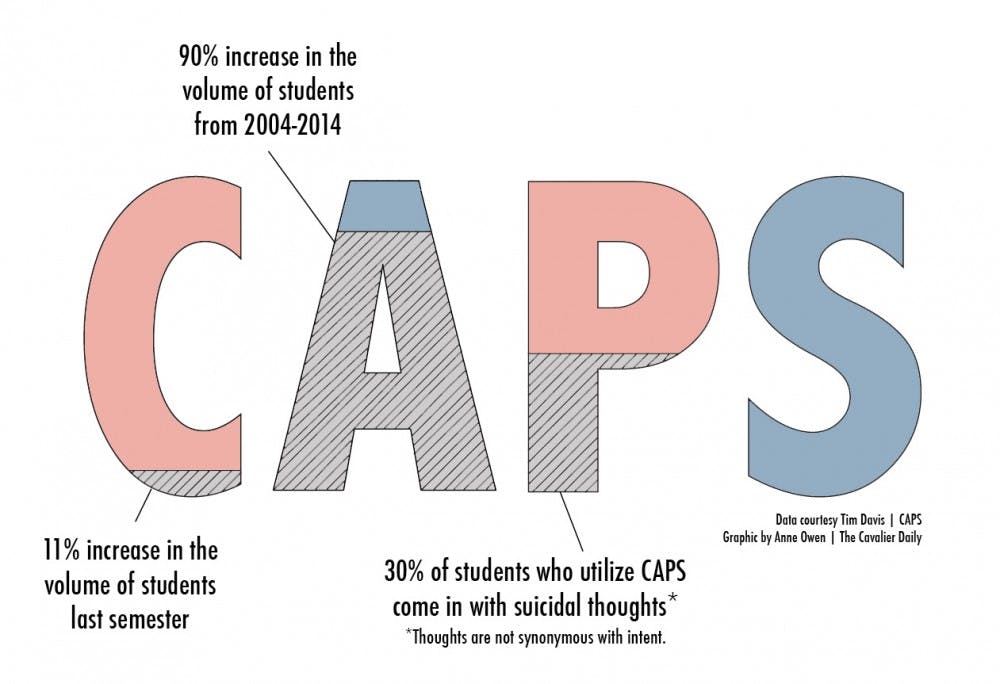Mental health is on the forefront of dialogue at the University — following a tumultuous semester punctuated by three student suicides. Visits to Counseling and Psychological Services last semester increased 11 percent from the semester before.
CAPS Director Tim Davis said one of the most helpful things students can do for each other is reduce the stigma around seeking help.
In 90 percent of student visits to CAPS, discussion focuses on classes or relationship issues, Davis said. However, CAPS workers are also prepared for more intense student concerns, like suicidal thoughts.
Davis said CAPS utilizes an assessment process for students who face more serious problems, such as suicidal thoughts.
“It is critical to understand clearly whether the idea of suicide exists or the intent,” he said. “We err on the side of asking every student whether they have suicidal thoughts and follow up by asking if they have thought about how they would do it or if they have made a past attempt.”
CAPS utilizes a variety of questions and observational assessments to help students with the idea or intent of suicide, but according to Davis, the best thing CAPS can do is help the student feel safe in the University community.
Confidentiality is important Davis said — and whatever a student shares with a CAPS counselor will stay with their counselors.
From 2004 to 2014, visits to CAPS increased 90 percent.
“Nationally, college students are coming in with more intense concerns, which is a really good thing because in the past, people were held back by a diagnosis of a mental health disorder,” Davis said. “Now with advances in treating depression, students can come and flourish. Another positive part is that mental health stigma is coming down nationally, and when stigma associated with asking for professional support goes down, visits will go up.”
CAPS is conducting suicide awareness training to make faculty and staff more aware of possibly elevated risk. In addition to these efforts, Davis encouraged faculty and students to branch out and and welcome new people to social groups.
The CAPS website offers the mnemonic developed by the American Association of Suicidology, “IS THE PATH WARM,” to aid the community in identifying the potential for suicide. The mnemonic stands for risk factors of ideation, substance abuse, purposelessness, anxiety, trapped, hopelessness, withdrawal, anger, recklessness, and mood changes.
Davis said in many cases, people who choose to end their lives are often not woven into a specific social group or into a certain niche in the community. Understanding why some individuals are left out is an enigma for Davis and others dedicated to suicide awareness.
Opening the channel of communication between concerned individuals and affected students, and between affected students and CAPS, is key.
For more information, visit http://www.virginia.edu/studenthealth/caps.html.







